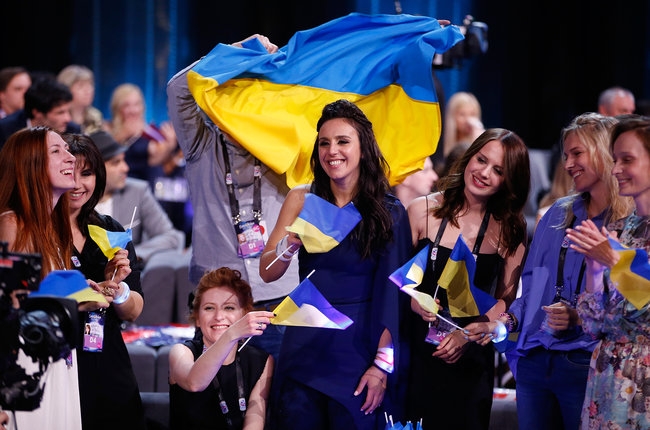The organizer of the Eurovision Song Contest, the European Broadcasting Union (EBU), is changing the rules that govern the annual international music competition after controversy marred Ukraine's hosting of the event earlier this year.
Russia withdrew from the competition after Ukraine banned its contestant, Julia Samoylova, after authorities said she was subject to a two-year exclusion order after allegedly illegally entering Crimea via Russia, which is forbidden under Ukrainian law. Ukraine disputes the legality of Russia's seizure of the Ukrainian territory in 2014, which Moscow claims was later legitimized by a referendum, in which the population of the Crimean peninsula voted overwhelming in favor of being incorporated into Russia.
It was this incident, along with widely reported deficiencies in preparing for the Kiev contest, that has prompted changes to the rules for future Eurovision events, the EBU said in a statement posted on its website.
"Undoubtedly, the 2017 Eurovision Song Contest in [Kiev] saw a number of undesirable incidents, many of which almost saw the potential movement of the event outside the host country of Ukraine," the EBU said. "The most unpleasant issue that occurred in this year's Eurovision was the ban of the Russian representative from entering the host country by the Ukrainian authorities."
There was no room for politics in the Eurovision contest, the EBU stressed, adding: "Neither selected artist nor any member of the delegation shall have any antecedents likely to prompt the host country's national authorities to deny them access to the host country, in accordance with applicable national law."
The Eurovision Song Contest is a non-political event, it stated: "That means that any form of political propaganda during the event or any political content included in the songs are prohibited."
Last year's Ukrainian entry Susana Jamaladinova's song "1944" was criticized for lyrics that were allegedly anti-Russian as it referred, obliquely, to wartime deportation of ethnic Tatars from Crimea ordered by Stalin. The EBU cleared the song, allowing Jamala to perform in the contest, which she went on to win.
The new rules, which significantly tighten up on political and organizational regulations, are designed to prevent future controversies.
Apart from banning any political references in songs, host broadcasters must ensure no commercial, brand, product or service promotion occurs during the event.
National juries must be strictly independent, with no relation to the artists or songs that "could affect the final outcome." Juries must not reveal in advance their preferences or voting intentions.
Better time-tabling must become a feature of future Eurovision contests, the EBU also said. "Following this year's incidents ... the EBU is set to be more strict when it comes to the host broadcaster and their compliance with the agreed timetables, to ensure the proper flow with the preparations and the hosting of the competition."
Failure to adhere to timetables could mean the broadcast rights being handed to another company, the EBU added.
This article was originally published by The Hollywood Reporter.








